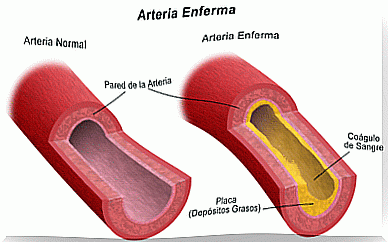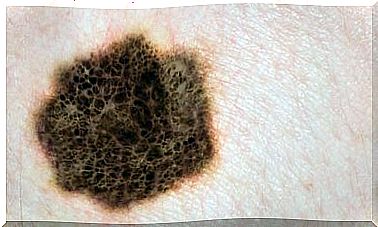How To Prevent Heart Disease In Women
It has been estimated that one of the main causes of mortality in women is heart disease. Although it is true that it affects both genders equally, women have particular characteristics that must be taken into account and that can help prevent them. Would you like to know more?
Heart disease is not just for men. In fact, the World Health Organization indicates that cardiovascular diseases are the ones that cause the most deaths in women. What can we do? What changes do we have to make in our lifestyle to prevent these diseases?
Heart diseases that affect women the most
If the symptoms of any of the following diseases are suffered, the most urgent measure will be to consult with the doctor or cardiologist to make a diagnosis and indicate the treatment to be followed.
1. Arteriosclerosis

Next, we will list some habits that, according to science and in general terms, contribute to improving the well-being of a person. If you suffer from a specific condition or chronic disease, it is best to consult a doctor.
- Eat fruits and vegetables every day: Try to consume several pieces of fruit and vegetables a day. Avoid canned vegetables, as they contain salt. A good alternative is to steam the vegetables and season with olive oil.
- Limit your intake of salt, as it has been proven to be counterproductive for cardiovascular health.
- The cereals, better whole, especially rice, wheat, rye.
- Nuts: experts recommend consuming nuts regularly, as they promote cardiovascular health.
- More fish and reduce the consumption of red meat: sardines, mackerel, tuna or salmon, have the healthy omega 3. It is therefore advisable to reduce the intake of red meat and increase the consumption of this type of fish.
- Avoid tobacco, reduce or eliminate alcohol consumption and sugary drinks.
- Try to eat five meals a day, a good breakfast, a light dinner and avoid snacking between meals. Remember that these are general keys. For precise guidelines for your diet, consult a nutritionist.
- Take care of your blood pressure.
- Take care of your blood sugar levels.
- Get at least half an hour of exercise a day; This is the WHO recommendation in this regard.
- Get regular medical check-ups, especially if you are overweight or elderly.
- Take care of your emotional life, reduce stress and anxiety.
Finally, we remind you that these are key for the general population and that your needs may vary according to your state of health. Identifying any discomfort or pain in time will help you to go to the doctor as soon as possible and avoid major complications.









